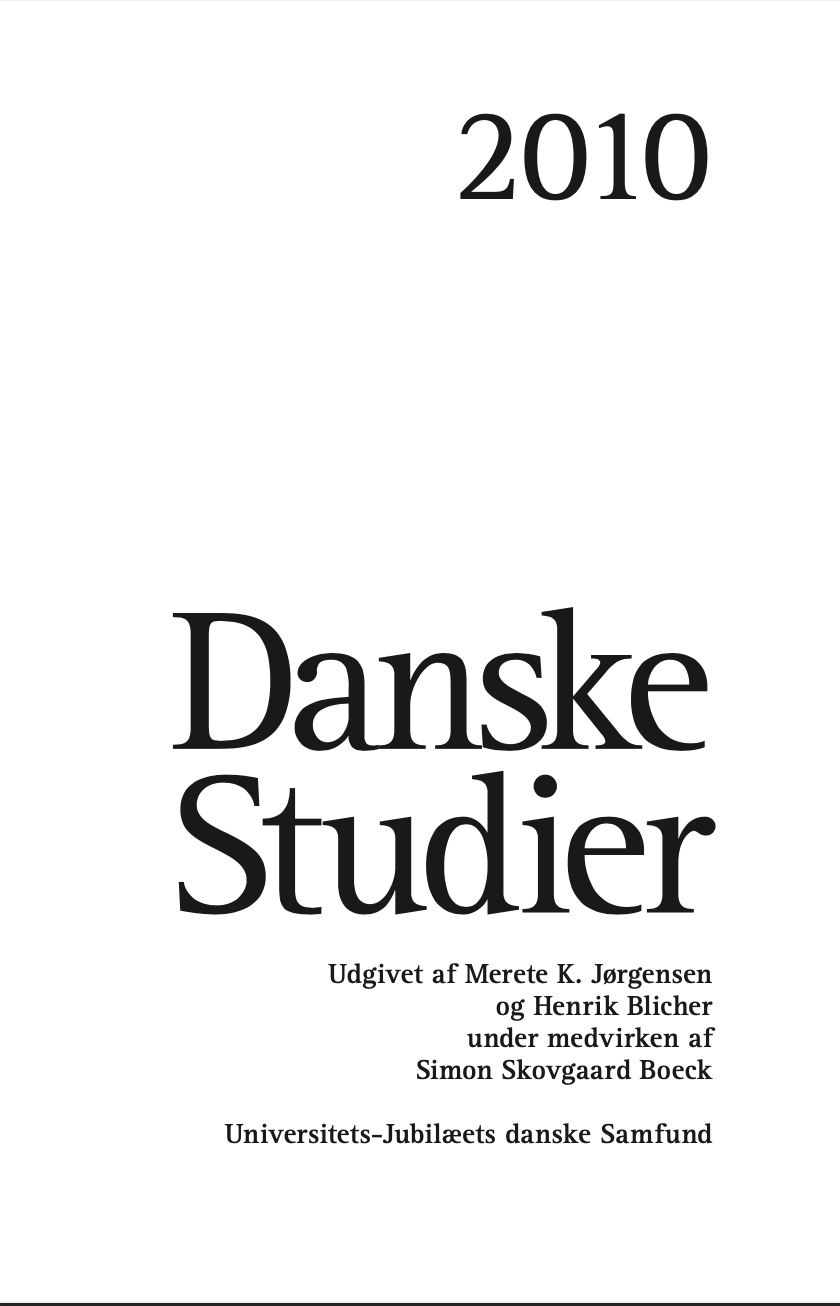O du – tiltaleformer hos Ewald
Schlagworte:
Johannes EwaldAbstract
This essay discusses modes of address in the works of the Danish eighteenth-century writer Johannes Ewald in relation to rhetoric and speech-act theory. The theory of apostrophe in classical rhetoric, modelled on courtroom proceedings, is supplemented with its resurrection in the deconstructive criticism in the 1970s in Jonathan Culler and Paul de Man, who were interested in the non-referential dimensions of language, mainly in post-Enlightenment poetry. Apostrophic poems have mainly been concerned with three themes: religion, love and (in romantic writers) reconciliation with nature. In technical terms, apostrophe has been defined as dependent on the exclamation »O«, the second person address and the ontological status of the addressee as absent and inanimate. These thematic and technical features are exemplified in the works by Ewald, leading to a proposal for a classification of addressees in his poems. Relating apostrophe to speech act theory reveals that most verbs in apostrophes belong to the category of exercitives (Austin) or directives (Searle). The essay concludes by mapping the varieties of the grammatical analogy of apostrophe, namely imperative, and its manifestation in prayers and rhetorical questions.
Downloads
Veröffentlicht
Zitationsvorschlag
Ausgabe
Rubrik
Lizenz

Dieses Werk steht unter der Lizenz Creative Commons Namensnennung - Nicht-kommerziell - Weitergabe unter gleichen Bedingungen 4.0 International.
Artikler offentliggjort fra 1/1 2021 er omfattet af CC BY-NC-ND-Licens.
Artikler publiceret i Danske Studier før 1/1 2021 er underlagt dansk ophavsret. Det betyder at man må citere, downloade og linke til dem via tidsskrift.dk. Genudgivelse af artiklerne kræver en aftale med redaktionen som også ejer ophavsretten.





